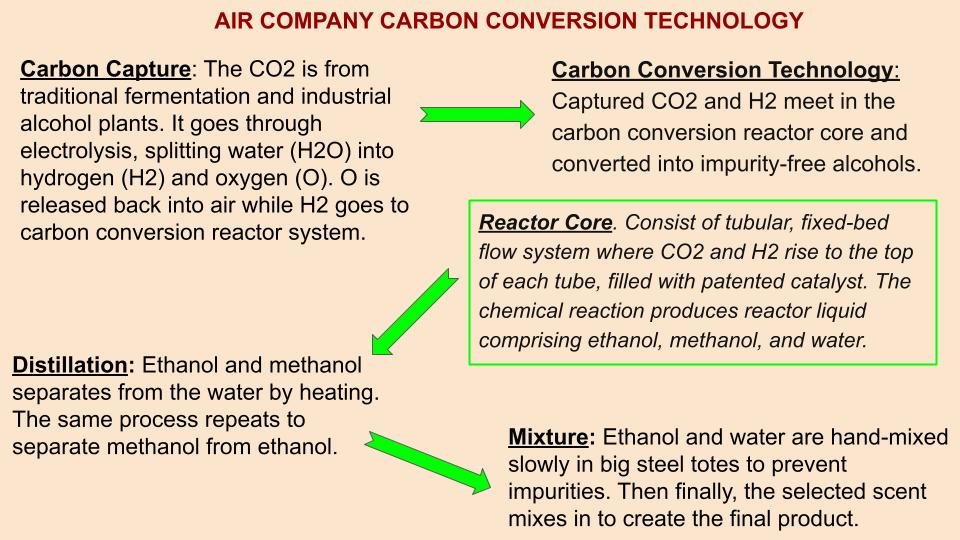Air Company, a carbon technology and design company, has raised $30MM in Series A funding to scale up its carbon conversion technology.
The money lining up to fund early-stage carbon removal technologies is adding up so fast. After the giant tech companies revealed their almost $1 billion fund for carbon removal startups, millions of capital came rushing in.
But what is more interesting is the value created in capturing CO2 and converting it into a product. Just like what Air Company is doing that attracted $30 million capital investment.
Carbon Direct Capital Management led the round along with other venture capital firms. These include Toyota Ventures, JetBlue Technology Ventures, and Parley for the Oceans.
How Air Company’s Carbon Conversion Technology Works
The startup makes carbon-negative alcohols and consumer products out of thin air. It does so through its proprietary technology that transforms CO2 into impurity-free alcohols.
The converted alcohol is then used to make a variety of consumer goods. Some of them are the famous ones like carbon-negative Air Vodka, Air Spray hand sanitizer, and Air Eau de Parfum.
The company is using only three key inputs to create its innovative products – air (CO2), water, and sun. It uses 9% solar energy for the conversion process and 91% wind energy to power its production.
Here’s how Air Company’s carbon conversion technology works:
With its pioneer carbon technology, Air Company made the world’s first alcoholic beverage directly from CO2, Air Vodka.
According to its CEO and Co-founder, Gregory Constantine,
“Our goal is to integrate our carbon technology into every applicable sector to help combat the climate catastrophe… We’ll do this by providing people with a beautiful range of products made from captured CO2.”
Air Company debuted in 2019 and started with its first factory in Brooklyn, New York.
Where Will The Funding Go?
The $30 million growth capital will be for building the Air Company’s third factory. This is to ramp up its carbon conversion technology and CO2-derived alcohol production.
This new state-of-the-art factory will be home for its new commercial-scale carbon technology. By far, it would be the biggest factory to date.
Such scaling up is also part of the firm’s plan to expand into the industrial and aerospace sectors. For instance, it has worked with NASA for space exploration in making sugars and proteins from its CO2-derived alcohols.
Air Company’s pioneering system seems capable of scaling up across industries. If so, its carbon conversion technology can help tackle up to 10.8% of global CO2 emissions. This is roughly more than 4.6 billion tons of CO2 removed and avoided each year.
By using captured carbon and replacing CO2 taken out the ground, Air Company aims to really have an impact in addressing climate change.
By far, Air Company is not the only carbon technology that focuses on how to use captured CO2 to make new products. There are a couple of others, too, recognized by Elon Musk’s $100 million Carbon Removal XPrize.
Examples include SkyNano that is using captured CO2 to make parts of tires and batteries. Another one is DyeCoo that uses reclaimed CO2 to dye textiles, avoiding the use of chemicals.
When these carbon tech startups mature, we can all expect to see a growing sector called “carbon to value”. This space presents a double blow of removing carbon while creating additional value.
And one way to create more value to carbon is by reusing it as an ingredient for materials like cement or consumer goods.


